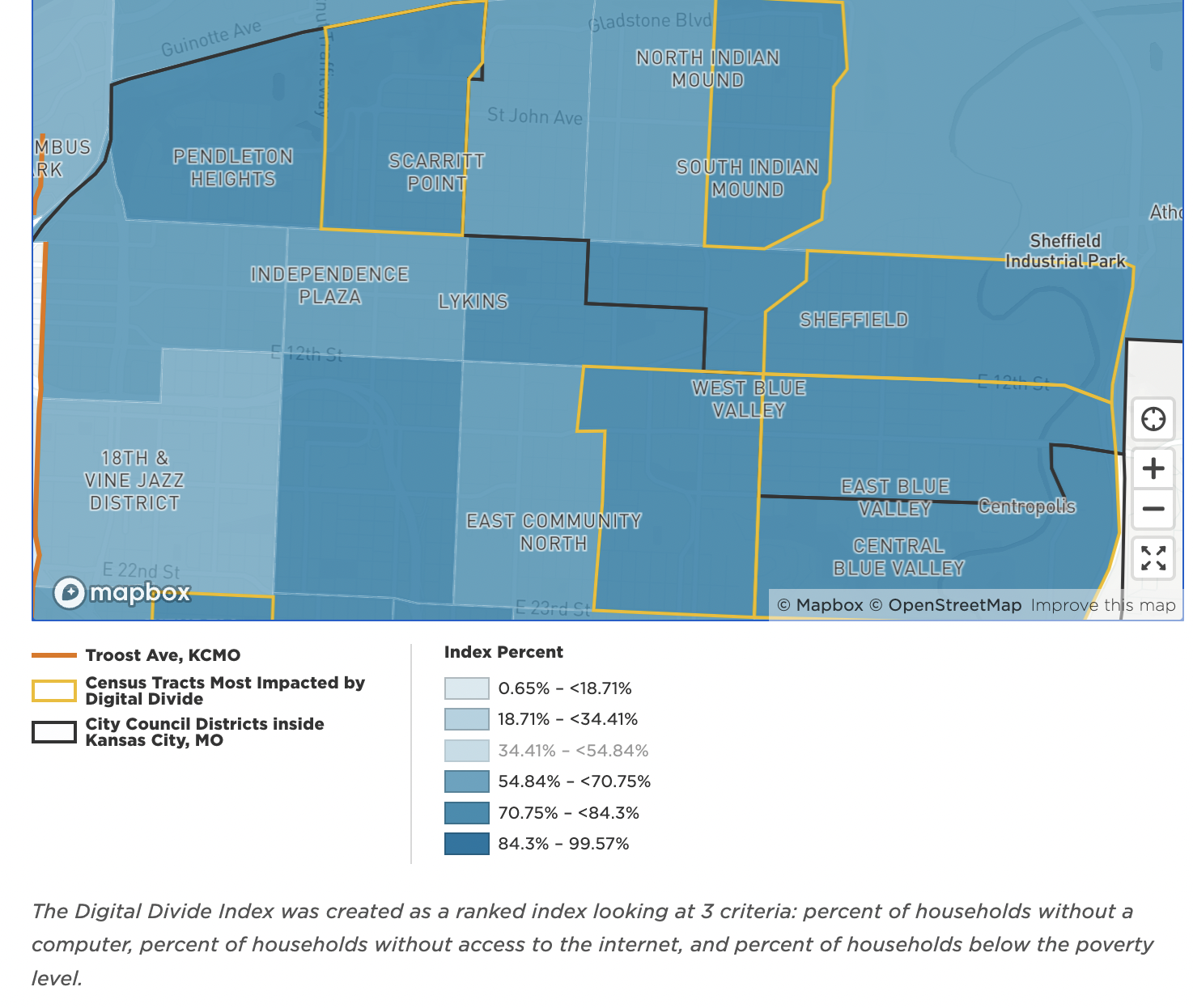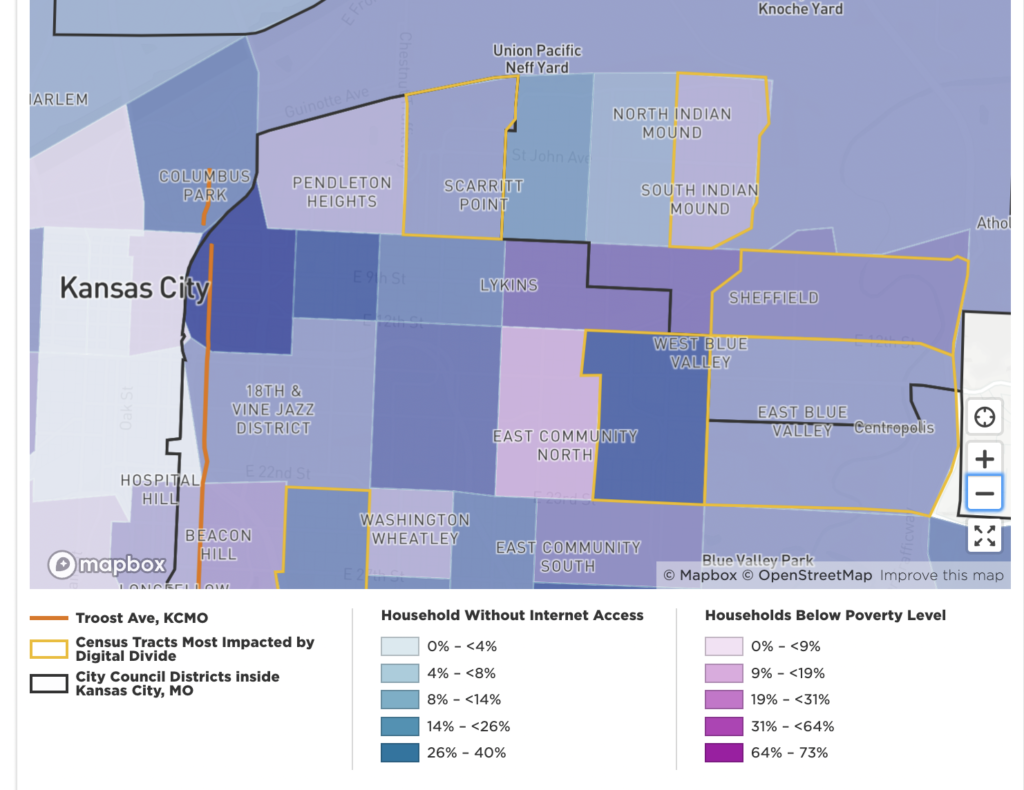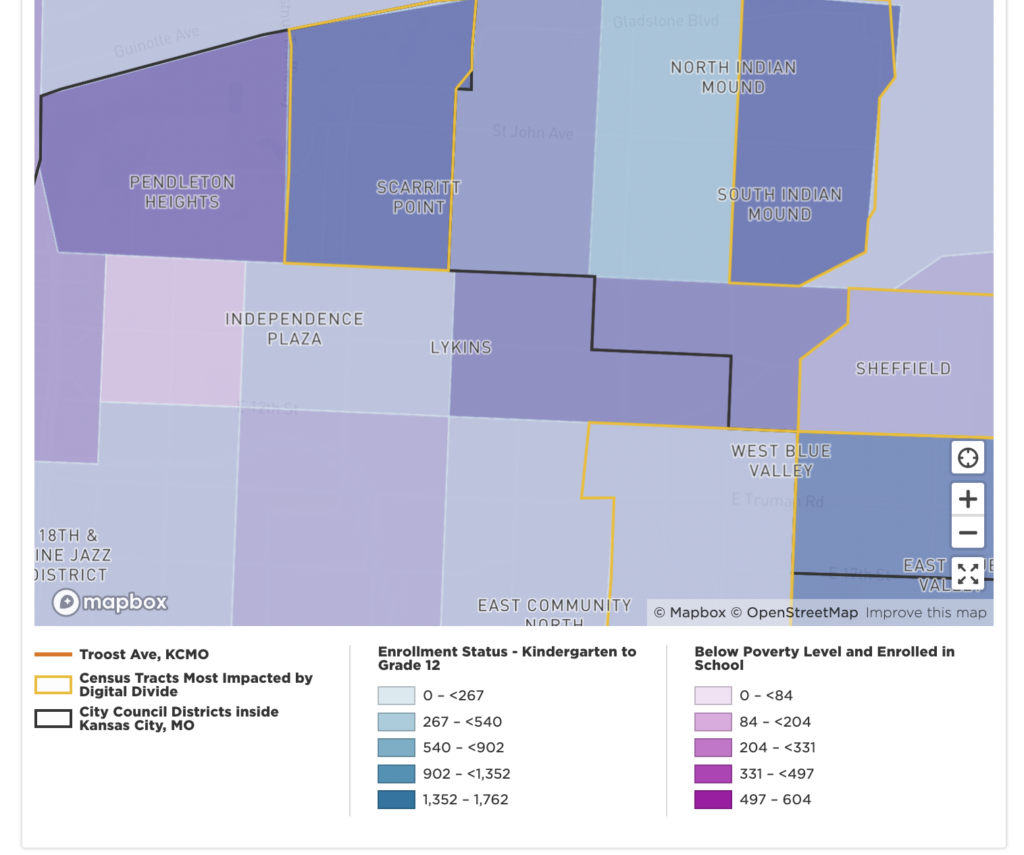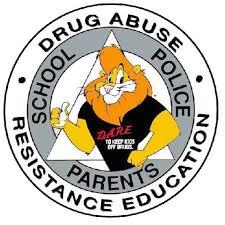
RobyLane Kelley
Editorial Assistant
Since the COVID-19 pandemic, the gap in internet accessibility has widened, creating a divide in a growing digital world where work, applications and resources are meant to be accessible to anyone — barring those with limited access. Reliable Internet is not free, but services and programs around the greater Kansas City area allow residents to access the Internet from their homes and public areas.
What is the Divide?
A Kansas City connectivity report is available on mysidewalk.com — an online software that collects and analyzes data from public records. This report focuses on Kansas City homes impacted by what programs, like mysidewalk.com, refer to as “the digital divide.” The report suggests the digital divide is caused by “infrastructure, financial and cultural barriers.”
The data collected and analyzed through the 2020 census indicates Kansas City, Mo., averages 8% of households without internet access and 6% without computers. District Three exceeds these averages with 17% of households without internet access and 13% without computers, while council district four reports 8% of residents without internet and 5% without computers. “This (digital divide) impacts residential education, access to social and healthcare resources and connection to social networks and shared amenities,” according to the connectivity report.
The census data suggests three Historic Northeast neighborhoods, Sheffield, Scarritt Renaissance and South Indian Mound, are a few of the neighborhoods most impacted by this digital divide.
Fortunately, there are a multitude of ways for Kansas City residents to receive internet access without added cost.
Available Services for a Short-term Solution
The Kansas City Public Library (KCPL) offers “Internet to Go” — a program that allows library cardholders to borrow a wifi hotspot — from any location and bring it home. To check out a hotspot through KCPL, residents must be 13 years old or older, agree to its terms and conditions and provide proof of address or be a student at Kansas City Public Schools or Academy Lafayette Charter Schools. The hotspot is completely free to use but must be returned to a KCPL location within 21 days. Patrons can call the North-East branch at (816) 701-3485 to check availability or put a unit on hold.
For a quick look at where free wifi is available, wifimap.io or the corresponding application “WiFi Map” provides a complete list of wifi locations — like bus stops or coffee shops — and the password needed for access.
Programs Offering Long-term Solutions
A Kansas City-specific program called the Internet Access Support Program (IASP) aims to help low-income families find affordable internet. The IASP application process — available on kcconnect.me — must be completed to determine if residents qualify for “direct benefits” such as “find affordable internet service in your area,” “pay for your monthly internet bill for six months or pay off an old balance” and/or “refer you to partners that can help with devices, digital skills classes, or other resources.”
IASP “Even for households who do not qualify for direct benefits and subsidies, IASP may be able to help individuals better understand their internet bills and discover ways of lowering their costs through negotiation, cord cutting or other strategies,” according to its website. Information and applications are available in English and Spanish.
Digital Inclusion KC is a Kansas City nonprofit that offers assistance and training. Those in need of assistance with getting connected to the internet, finding technology and “training or completing a task” can fill out its online form for greater help. Those interested in getting involved or receiving help can go to digitalinclusionkc.org/ to fill out a form. The website also has contact information for partnered groups like WeCodeKC, Guadalupe Center and Northeast Community Center.

















